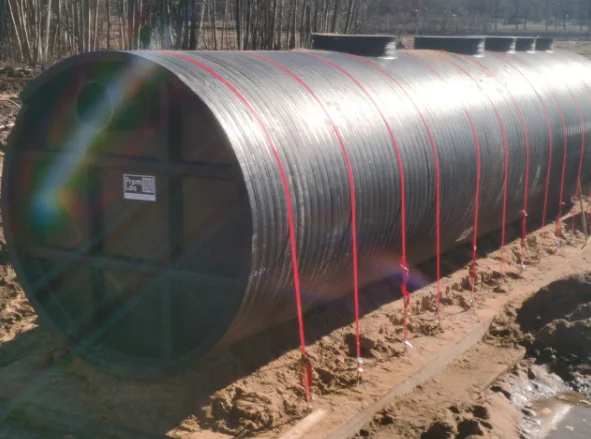Wastewater treatment plants play a key role in ensuring environmental sustainability and human health. The rapid development of technology and changes in the environmental situation require constant updating of requirements and standards for the production of such structures. In this article we will consider the main goals and objectives of treatment facilities, as well as modern requirements, standards, technologies and economic aspects of their production.
The main goals and objectives of treatment facilities
The purpose of treatment facilities is treatment of wastewater and waste to minimize their impact on the environment. This is achieved by removing contaminants such as organic matter, heavy metals, pesticides and other chemical compounds. One of the key objectives of such structures is to reduce the level of bacterial contamination, which helps prevent the spread of infections and protect human health. The effective operation of wastewater treatment plants is important not only for maintaining the cleanliness of water bodies and soil, but also for ensuring the safety of drinking water and the sustainable development of ecosystems.
Modern requirements for the design of wastewater treatment facilities
Design of modern wastewater treatment facilities subject to strict regulatory requirements and standards. It includes analysis of the composition of wastewater and determination of optimal treatment methods and technologies. An important aspect of design is taking into account local climatic and geological features, as well as planning reserves for a possible increase in processing volumes in the future. Modern design requirements also pay attention to aspects of energy efficiency and minimizing harmful environmental impacts. An important aspect is ensuring the safety of technological processes and preventing emergency situations, which is achieved through the implementation of modern monitoring and control systems.
Quality and safety standards
In the field of quality standards and safety of treatment facilities, high attention is paid is devoted to ensuring compliance of purified water with certain standards. This includes monitoring the content of harmful substances such as heavy metals, chlorine and organic compounds and ensuring they comply with established safety standards for drinking and household use. The standards also define requirements for the efficiency of treatment processes, ensuring a high degree of removal of contaminants and bacteria from wastewater. Process safety is an integral part of the standards, including measures to prevent accidents, ensure the protection of personnel from hazardous substances and equipment, as well as the development of evacuation plans and emergency response measures.
Technology and engineering solutions
Modern technologies and engineering solutions play an important role in ensuring the efficiency and reliability of wastewater treatment plants. They include a wide range of purification methods, ranging from physico-chemical processes to biological and membrane technologies. The use of membrane systems allows for ultrafiltration and reverse osmosis, providing a high degree of purification even with high concentrations of contaminants. Biological treatment is based on the activity of microorganisms capable of decomposing organic substances in wastewater, which reduces the load on equipment and reduces the cost of chemical reagents. Ultraviolet disinfection is an effective method of destroying bacteria and viruses without the use of chemicals, making it safe for the environment and humans. Engineering solutions include the design and construction of structures taking into account the optimal location, configuration and hydraulic characteristics, which allows for high productivity and longevity of equipment with minimal operating and maintenance costs.
Economic aspects
Economic aspects of production of wastewater treatment plants cover a wide range of financial issues, ranging from design and construction costs to expenses for operation and maintenance. One of the key aspects is the calculation of construction and equipment costs, which includes the purchase of necessary materials, payment of workers and engineers, as well as payments for licenses and certificates. Effective budget planning allows you to optimize costs and avoid overspending. In addition, an important aspect is the assessment of the economic efficiency of the project, which includes the calculation of expected profits, payback periods for investments and risks associated with changes in the economic situation or technological requirements.
Management and maintenance
Effective management and maintenance of wastewater treatment plants are important aspects of their long-term operation. It includes planning




